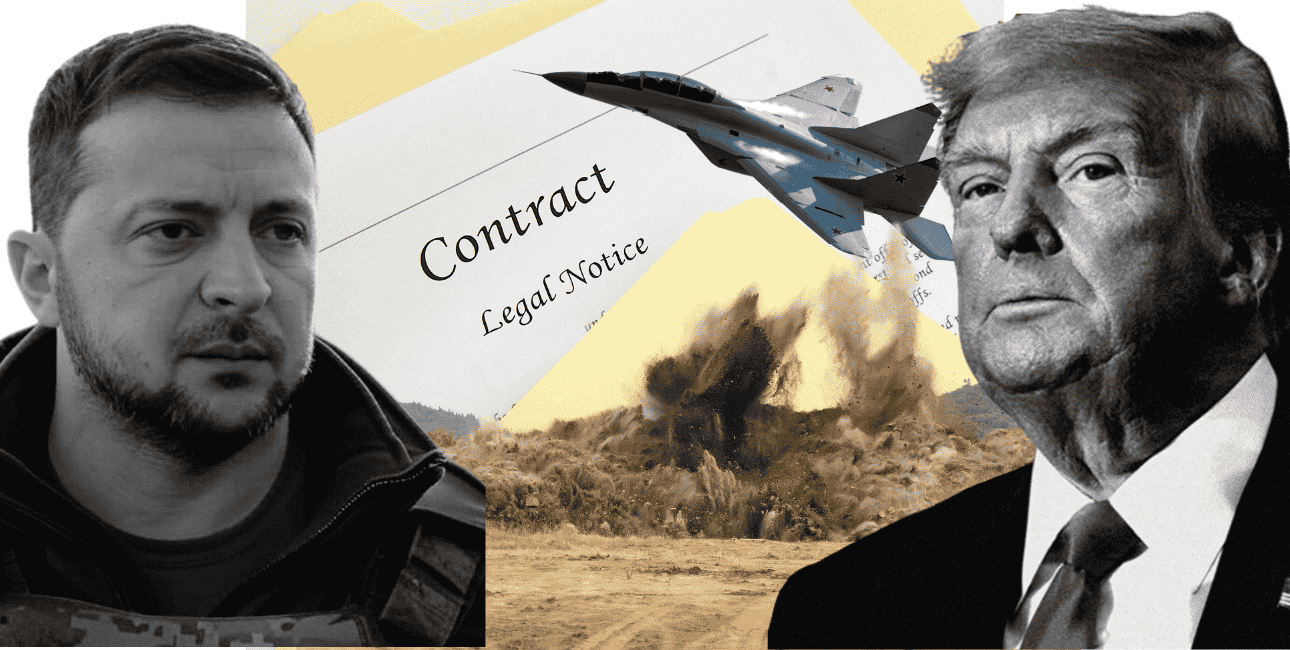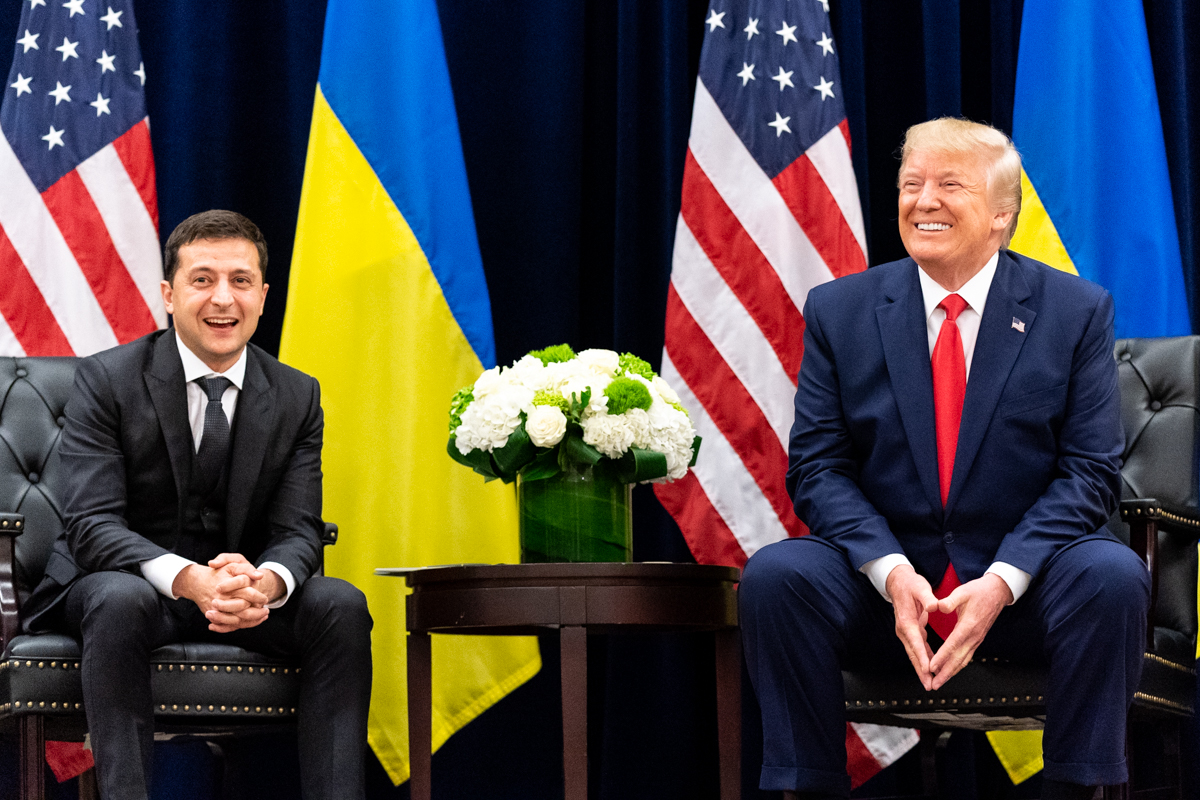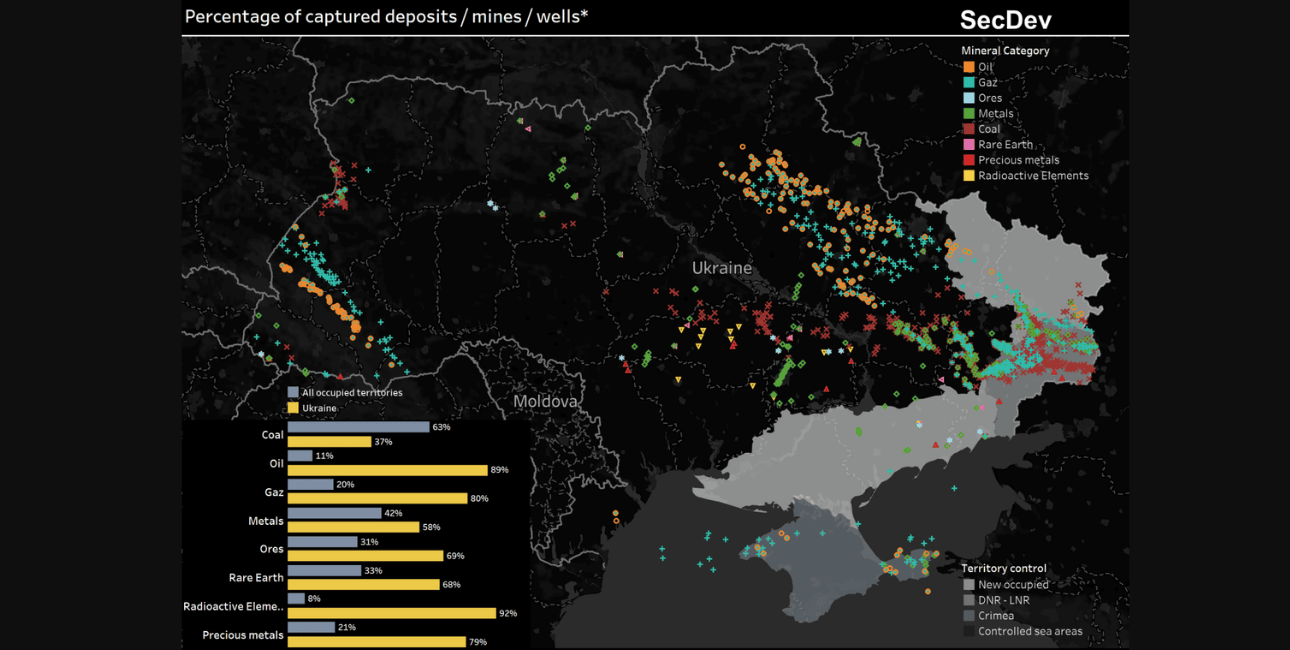The text of the draft contract offered by US President Donald Trump to Kyiv would turn Ukraine into an economic colony for Washington for years to come and goes far beyond the US control of the country’s critical minerals, covering everything from ports, infrastructure, oil and gas, and rare earth minerals.
The proposed terms of the agreement are reportedly even harsher than the financial sanctions imposed on Germany and Japan following their defeat in the Second World War. Ukrainian President Volodymyr Zelenskyy was taken aback by the finer details of the proposed agreement, which mirror the penalties usually imposed on a defeated aggressor state following a war.
The US demanded a 50 percent share of Ukraine’s revenues from its natural resources, ports, and infrastructure as compensation for the US$500 billion that Trump claims the US has given Kyiv for supporting its war effort.
British newspaper ‘The Telegraph’ has seen the ‘secret’ document marked “Privileged & Confidential,” dated February 7, 2025. Here are some of the troubling aspects of the proposed deal.
Joint-Investment Fund: According to the newspaper, the agreement proposes that the US and Ukraine form a ‘joint investment fund’ to ensure that “hostile parties to the conflict do not benefit from the reconstruction of Ukraine.” This fund would have extensive control over Ukraine’s resources.

Revenue-Sharing In Perpetuity: The deal would allow the US to indefinitely maintain a 50 percent stake in Ukraine’s economic activities. The publication reports that the agreement covers the “economic value associated with resources of Ukraine,” including “mineral resources, oil and gas resources, ports, other infrastructure (as agreed).”
The term “other infrastructure (as agreed)” is open-ended, leaving it unclear what else might be encompassed in the overarching agreement.
The US will have a 50 percent share in Ukraine’s recurring revenues from resource extraction and would receive 50 percent of the financial value of “all new licenses issued to third parties” for the future monetization of resources.
There will be “a lien on such revenues” in favor of the US, meaning the US claims will be prioritized over Ukraine’s needs. This clause will significantly hamper Ukraine’s long-term economic recovery.
“That clause means ‘pay us first, and then feed your children,’” a source close to the negotiations was quoted as saying by the publication.
Right Of First Refusal: Further, “for all future licenses, the US will have a right of first refusal for the purchase of exportable minerals.” This will give Washington a preferential right to purchase exported minerals.
Legal Governance: Further, the draft proposes that “This agreement shall be governed by New York law, without regard to conflict of laws principles,” giving the US sovereign immunity and tilting the balance of power in favor of the US at the cost of Ukraine. This means that any dispute related to the legal ramifications of the contract will be decided in US courts.
Exclusive Control: The joint investment fund “shall have the exclusive right to establish the method, selection criteria, terms, and conditions” of all future licenses and projects, essentially granting the US near-total control over Ukraine’s natural resources. All this would give the US significant leverage in deciding the future course of Ukraine’s economic development.
Zelenskyy Stumped
It is noteworthy that President Zelenskyy himself proposed giving the US a direct stake in Ukraine’s rare earth elements and other natural resources during a visit to Trump Tower in September last year. Zelenskyy hoped this would give the US a financial incentive to support the Ukrainian war effort.

Further, this would have entailed US corporations investing in Ukraine and setting up operations there. The US’s involvement in Ukraine could have deterred Vladimir Putin from attacking again.
Speaking to Reuters earlier this month, Zelenskyy said: “If we are talking about a deal, then let’s do a deal, we are only for it.”
Zelenskyy also tried to play on the fears that Ukraine’s valuable natural resources, including critical rare earth minerals, can fall into Russian hands. He said Moscow could open those resources to its allies North Korea and Iran, both sworn US enemies.
“We need to stop Putin and protect what we have – a very rich Dnipro region, central Ukraine,” he said.
Zelenskyy said less than 20% of Ukraine’s mineral resources were under Russian occupation. However, almost half of Ukraine’s rare earth mineral deposits were already under Kremlin control.
A New Versailles?
Zelenskyy did not expect that he could be confronted by a deal that would essentially turn Kyiv into an economic colony of the US.
The Telegraph suggests that the conditions are even harsher than the financial sanctions imposed on Germany and Japan following their defeat in 1945. Such harsh conditions are generally imposed on defeated aggressor states after a war.
“If this draft were accepted, Trump’s demands would amount to a higher share of Ukrainian GDP than reparations imposed on Germany at the Versailles Treaty, later whittled down at the London Conference in 1921, and by the Dawes Plan in 1924. At the same time, he seems willing to let Russia off the hook entirely,” the publication writes.
Ukraine’s Mineral Wealth
Trump has been pushing for a deal to secure Ukraine’s rare earth minerals in return for American aid.
Trump, citing nearly US$500 billion in US support, emphasized the need for “equalization.” “Ukraine has very valuable rare earths,” he stated, hinting at a potential resource-for-aid arrangement.
“We’re looking to strike a deal where Ukraine secures what we’re giving them with their rare earths and other things,” he added.
So, what exactly does Ukraine have beneath its war-torn soil that has drawn global attention? A goldmine of critical minerals – making the country a potential powerhouse in the global raw materials market.

Among these are rare earth metals like titanium, lithium, beryllium, manganese, gallium, uranium, zirconium, graphite, apatite, fluorite, and nickel, according to the World Economic Forum.
Ukraine’s critical materials are valued at US$12 trillion, based on estimates that highlight the potential to expand the global market for raw materials. If we include other natural resources like coal and natural gas, this figure rises to US$26 trillion.
However, this figure should be viewed with caution. A significant portion of these reserves is unexplored, and the quality and quantity of the resources are still speculative.
Similarly, The Telegraph reports that Ukrainian shale gas reserves are in complex geology with high drilling costs.
Zelenskyy: Caught Between A Rock And A Hard Place
Struggling with military violation of his country by Russia, Zelenskyy is now staring at a second – economic violation – of Ukraine by the US. He is essentially caught between a rock and a hard place.
He needs continued US support to avoid Ukraine’s total collapse. At the same time, he cannot let Ukraine become a neo-economic colony of the US and compromise his country’s long-term economic recovery.
For now, Zelenskyy has told his aides to reject Trump administration officials’ proposal.
“I didn’t let the ministers sign a relevant agreement because in my view it is not ready to protect us, our interest,” Zelenskyy said at the Munich Security Conference.
Meanwhile, the White House has already stepped up the pressure on Ukraine to sign the deal.
“President Zelenskyy is being short-sighted about the excellent opportunity the Trump administration has presented to Ukraine,” White House National Security Council spokesman Brian Hughes told the Associated Press.
The White House believes “binding economic ties with the United States will be the best guarantee against future aggression and an integral part of lasting peace,” the National Security Council spokesman said, adding: “The U.S. recognizes this, the Russians recognize this, and the Ukrainians must recognize this.”
Under relentless Russian military pressure on the frontlines, it remains to be seen for how long Kyiv could fend off US pressure to sign the contract for its mineral wealth.
- Sumit Ahlawat has over a decade of experience in news media. He has worked with Press Trust of India, Times Now, Zee News, Economic Times, and Microsoft News. He holds a Master’s Degree in International Media and Modern History from The University of Sheffield, UK. He is interested in studying Geopolitics from a historical perspective.
- He can be reached at ahlawat.sumit85 (at) gmail.com




